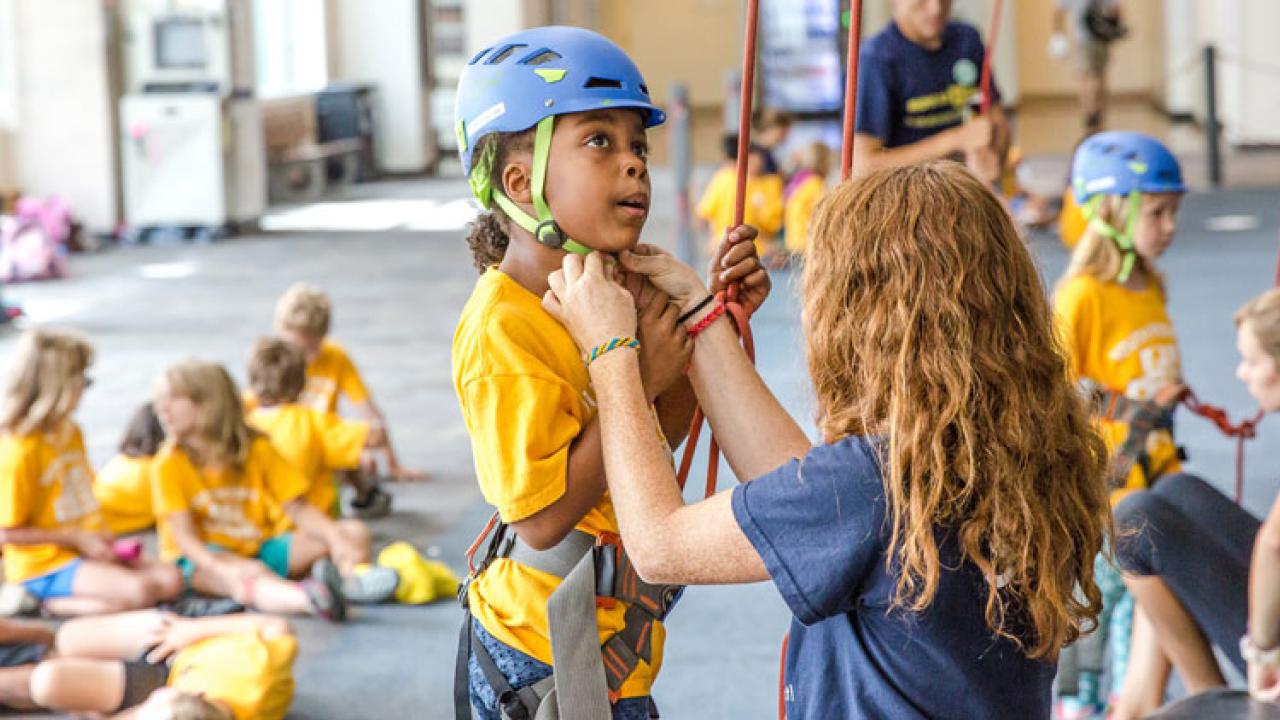Furthering its commitment to the safety and protection of minors who participate in UC Davis activities and programs, the university is now requiring the advance registration of such events on and off campus where children and teens under 18 are not chaperoned.
REGISTRATION AT A GLANCE
The Youth Protection Program webpage specifies the following:
- Registration for ongoing and pre-established activities and programs with minors must be completed annually prior to the beginning of the university academic year.
- Registration for other activities and programs with minors should be completed 60 days in advance when possible, but must be completed before such activities and programs begin.
Gaby Renteria, risk manager, acknowledged that organizers of some activities and programs will not be able to meet the new registration deadlines, given that the policy did not take effect until late in the fall quarter.
“Nobody gets in trouble, and Risk Management isn’t shutting down programs that can’t meet the timelines outlined in the policy,” she said. “However, everyone needs to register their programs, which starts the conversation and moves everyone toward compliance. Those individuals should also take note of the timelines when planning future programs.”
The process starts with this registration form. Upon submission, Renteria said, “You’ll get a receipt that your registration was received, along with next steps. Specifically, Risk Management will reach out to the program manager/submitter to discuss their registration and to provide some resources for managing activities and programs with minors.”
The registration rule is part of a policy that took effect Dec.10, Activities and Programs With Minors (enumerated 290-31 in the Policy and Procedures Manual). It also:
• Clarifies the university’s screening requirements (including background checks) for employees and volunteers who interact with, supervise, chaperone or oversee minors in activities and programs.
• Inserts into the screening process a new Code of Conduct With Minors, outlining common-sense practices (for example, avoid working one-on-one with minors in private settings) and listing best practices for physical affection.
The policy applies to “any event, operation or endeavor operated, conducted or organized by the university, that includes minors, during which parents or guardians are not expected to be responsible for their care, custody or control.”
The university’s Youth Protection Council, chaired by Risk Management Services and including staff and faculty experts and advisors, developed the policy after having been tasked with providing consistent guidance and a structure to help prevent untoward action against minors, as well as false allegations against the organization.
“The responsibility for ensuring the protection of minors we host on campus falls to us,” said Gaby Renteria, risk manager. “This policy fully supports UC Davis’ mission, which requires that we create an environment that is safe, nurturing, empowering, and that promotes growth and success.”
The policy does not apply to minors who are enrolled for academic credit. Other exemptions include public events such as Picnic Day, and activities and programs operated, conducted or organized by registered student organizations or third-party organizations that rent university facilities.
Safety Services, which includes risk management, has put up the Youth Protection Program webpage to help managers understand the new policy, from registration to training and background checks. The site also includes a list of the most common activities that must be registered:
- Youth sports athletic camps and clinics
- Day camps and programs (nonsport)
- Overnight camps and programs
- Mentoring and tutoring programs
- Outreach programs
- Community service activities
- On-campus internships for minors
- Recruitment activities
For each such activity or program, according to the policy, “at least one authorized person must have care, custody or control of minors at all times.” The policy defines “authorized person” as an individual who interacts with, supervises, chaperones or oversees minors in an activity or program.
Prior to commencing their activities and programs, as employees or volunteers, all authorized persons must complete required training and screening (including a check of the National Sex Offender Registry), and sign the Code of Conduct With Minors.
Department heads are required to appoint program director(s) for all activities and programs with minors, and monitor for compliance with the policy; and program directors are required to register all activities and programs with minors. Registration is with Risk Management Services (via this online form).
“Youth protection is by far our No. 1 priority,” said Jeff Heiser, a member of the Youth Protection Council who works as associate director of recreation in Campus Recreation and Unions. In community recreation programs, Heiser said, “We’ve long implemented what this policy requires because they’re best practices, and I’m glad they are being formalized across UC Davis.”
The Youth Protection Council acknowledges this is an evolving effort and welcomes questions and feedback via Risk Management Services email.
